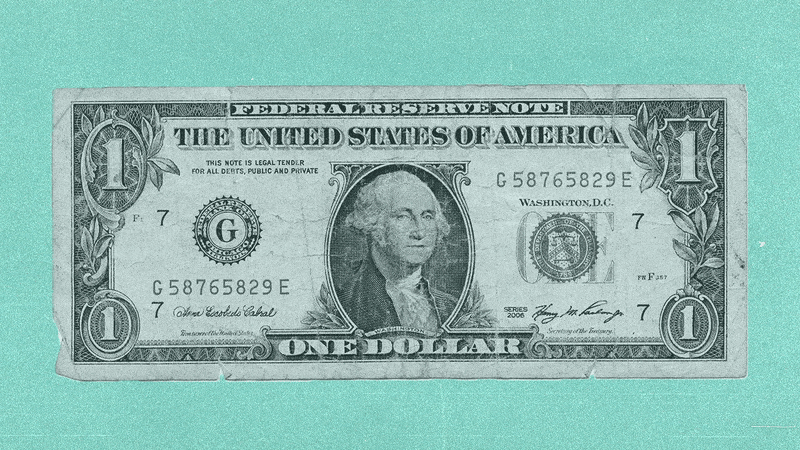October 14, 2022
Every time you pay for dinner by tapping your cellphone on a sensor, receive money for that freelance gig, or access government transfers by phone, you are participating in the rapidly accelerating move away from cash.
While the global fintech industry is rapidly evolving to expand access to the financial sector and make payments between individuals and businesses more fluid, the move away from cash means different things in different places. In wealthy states, the adoption of credit and debit cards is rife, while emerging markets tend to rely on digital wallets and cash apps that often don’t require a bank account.
COVID as a watershed. The pandemic was a boon for the digital payment industry as many businesses in developed economies increasingly turned down cash. For some countries, it hastened the transition to a virtual economy, while for others it has meant becoming less reliant on cash flows.
Consider that in Scandinavia, for instance, cash has been uncool for some time – a trend reinforced by the pandemic. Indeed, cash transactions accounted for just 1% of Sweden's GDP in 2018, and cash withdrawals have been declining by about 10% per year. Similarly, 85% of Danes used MobilePay, launched by Danske Bank in 2013, before the pandemic — and that number continues to rise.
In Africa, meanwhile, Kenya has emerged as a fintech leader after the country’s largest mobile network, Safaricom, launched a branchless banking system in 2019 that has caught on like wildfire. As of last year, at least 12 billion transactions had been made across the continent using the system, benefiting many small business owners and reducing poverty. (Since the program started, around 2% of Kenyan households have been lifted from extreme poverty due to increased access to fintech services.)
However, some societies simply love cash. Cash culture is rife in Japan, where despite being a hub for tech innovation, digital payment systems have been spurned by much of the population. More than 90% of those surveyed in Japan say cash is their primary payment method, according to Statista, with many citing security and privacy concerns as the reason for their preference. Moreover, some 38% of respondents said non-cash options “made them less aware of the amount of money they are spending.”
Critics say that there are also proven downsides to digital payment systems, including increased risk of cybercrime and inequality. Indeed, some research suggests that consumers who had mostly been paying in cash before COVID — having limited access to fintech solutions — are returning to cash again now. Meanwhile, many business owners and corporations that rely on digital payments benefited from stay-at-home orders and raked it in. In the US, for example, Amazon and Walmart together earned an additional $10.7 billion in 2020 — a 56% increase in profits from the previous year. But their employees’ wages grew just 7% and 6% respectively.
Meanwhile, in emerging markets, where roughly 2.5 billion adults were unable to make or receive digital payments, the pandemic was disastrous, exacerbating rich-poor divides.
Cashing out can also lead to crises. Indeed, many Indians learned this the hard way before COVID in 2016, when Prime Minister Narendra Modi invalidated the 1,000 and 500 rupee notes, which at the time represented 86% of India's currency. The move, intended to root out the underground economy, was catastrophic for India’s large gig economy and unbanked working poor.
It’s for this reason that many states and cities in the US have banned stores from refusing cash payments, saying this would disadvantage low-income consumers.
Bottom line. We are heading towards a future where cash will surely be used less and less. Still, as long as wealth inequality exists, cash will remain a key part of the global economy.
This article comes to you from the Signal newsletter team of GZERO Media. Sign up today.
More For You
Ian Bremmer sits down with former US Ambassador to NATO Ivo Daalder to unpack a historic shift in the transatlantic alliance: Europe is preparing to defend itself without its American safety net.
Most Popular
Think you know what's going on around the world? Here's your chance to prove it.
U.S President Donald Trump, U.S. Vice President JD Vance, and U.S. Secretary of State Marco Rubio pose for a family photo with other representatives participating in the inaugural Board of Peace meeting, at the U.S. Institute of Peace in Washington, D.C., U.S., February 19, 2026.
REUTERS/Kevin Lamarque
Argentina, Armenia, Belarus, Egypt, Indonesia, Jordan, Pakistan, Paraguay, Vietnam – to name only a few.
A poster featuring Andrew Mountbatten-Windsor, formerly known as Prince Andrew, is installed on a sign leading to the parking area of the Sandringham Estate in Wolferton, as pressure builds on him to give evidence after the U.S. Justice Department released more records tied to the late financier and convicted sex offender Jeffrey Epstein, in Norfolk, Britain, February 5, 2026.
REUTERS/Isabel Infantes
British police arrested former Prince Andrew Mountbatten-Windsor today over allegations that in 2010, when he was a UK trade envoy, he shared confidential government documents with convicted sex offender Jeffrey Epstein.
© 2025 GZERO Media. All Rights Reserved | A Eurasia Group media company.
